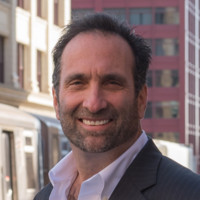Like most of you in response to recent shelter-in-place orders, I’ve looked for ways to keep entertained. Board games, new recipes, video chats with friends and family, and, of course, more television binging than I’d like to admit. While searching for just the right movie, I stumbled upon Silver Linings Playbook, an offbeat, quirky romantic-drama released in 2012. Both a Bradley Cooper and Jennifer Lawrence fan, I settled in for what I hoped would be at least a mildly entertaining two-hour escape.
What I didn’t expect was how relevant the movie was to our current reality.
A dark cloud does indeed appear to be overhead. In the midst of a world-gripping pandemic, a negative 24-hour news cycle, with infection and death rates changing by the hour, and an economy teetering, we may all feel that our lives have changed forever, never to return to normal comforts. The pandemic has changed the way we socialize, boredom races alongside fear, and economic security seems a far-off dream. Our collective anxiety and stress are understandably at an all-time high.
But as the title hints, and observation supports, storm clouds have a silver lining; we just need to spend a moment, often in the middle of the wind and rain, to see it.
Pat Solatano, Cooper’s character, is diagnosed as bipolar, with violent mood swings and a penchant for delusional thinking. To overcome his mental illness, and with the help of Tiffany (Jennifer Lawrence), who is battling her own demons, Pat tries to focus on the positive, the “silver linings.” He repeats his mantra “excelsior” (ever upward) when facing challenges, in an attempt to steer his tenuous mindset and self-damaging instincts toward a more optimistic outlook.
While I won’t spoil the ending, research from the field of positive psychology supports Pat’s outlook. As Dr. Martin Seligman, the father of positive psychology, writes in Authentic Happiness, “Optimism and hope are quite well understood, they have been the objects of thousands of empirical studies, and best of all they can be built. Optimism and hope cause better resistance to depression when bad events strike, better performance at work… and better physical health.”
With dark clouds looming overhead, that is good news.
In the spirit of shifting your mindset away from the dark clouds and toward their silver linings, here’s a few things you can do:
Limit the news: As we are painfully aware, if it bleeds, it leads. With that in mind, today’s news is awash in COVID-19 data points, updating new cases and deaths, with only an occasional reference to “recoveries.” Hardly uplifting. Limit your news watching to information about how to keep you and others safe. Consider spending more of your time engaging the healthy actions below:
Commit Acts of Kindness: When you commit kind acts for others, of course you affect the broader community. But you benefit as well. AOKs increase the release of the “happy chemicals” (dopamine, oxytocin, serotonin, and endorphins), creating a “helper’s high.” Research on those that spend more of their time helping shows they lower pain, stress, anxiety, depression as well as blood pressure. As Gandhi said, “The best way to find yourself is to lose yourself in the service of others.”
Connect with others: According to a well-known longitudinal
study from Harvard, a fulfilling life is found with those closest to us.
Study director Robert Waldinger stated emphatically, “Good relationships keep us happier and healthier, period.” New work norms have now forced couples and families to work and study together. While typical social norms have been altered, this presents an opportunity to improve the quality of familial relationships. Time to break out the board games, home improvement tools, and craft projects.
Impact the community: According to DoSomething Strategic, a social-impact consultancy, 67% of Gen Z stopped purchasing or would consider doing so if company stood for or behaved in way that didn’t align with their values. For organizations that commit to community service and corporate responsibility, they see dividends in terms of brand, market share, and retention. And millennials are more likely to choose one brand over another if that brand demonstrates corporate responsibility and giving back. During these extreme times of need, opportunities to help abound. What can your organization do?
If we allow the current climate and news cycle to determine our view of the world, all we will see is the darkness. But if we shift that mindset, looking instead for the positive and the “silver linings,” we’ll see neighbors gathering groceries for the needy, corporations donating masks and PPEs, and entire countries sending expertise, surplus supplies, and goodwill overseas. As Pat and Tiffany discovered, we just need to adjust our worldview and find the good that is all around us. Excelsior!


